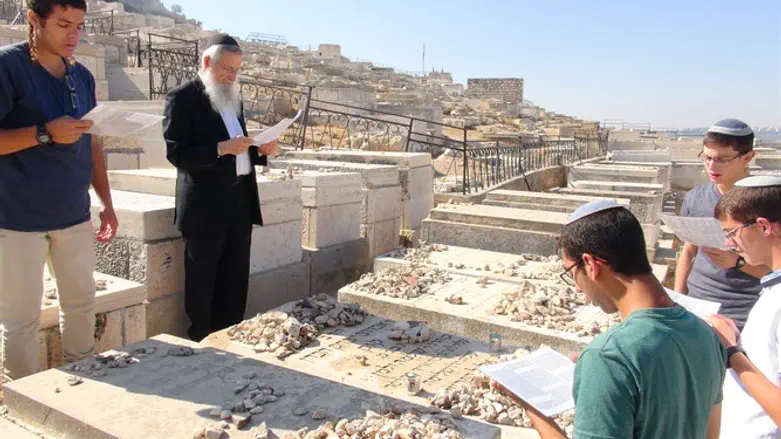
Psalm 104 describes the wonders of creation, how forces of nature act as God’s messengers:
עֹשֶׂה מַלְאָכָיו רוּחוֹת מְשָׁרְתָיו אֵשׁ לֹהֵט
“He makes His messengers to be spirits, and His servants - burning fire.” (Psalms 104:4)
To explain this verse, we must first understand: what is the difference between a messenger (mal'ach) and a ministering servant (meshareit)?
Messengers and Servants
A mal'ach is a messenger who serves the king from afar, carrying out the king’s orders throughout the kingdom. A meshareit, on the other hand, is a servant who works in proximity to the king, tending to his master’s needs within the palace.
Rav Kook explained that the verse describes not only God’s celestial agents, but also His human ones. In our service of God, we can be both messengers and servants. How?
When we pray, we reveal the holiness of our inner ratzon - our yearnings to be close to God and our aspirations for holiness. As we stand in prayer, we are like a meshareit in the palace of the King. As it says, “Fortunate are those who dwell in Your house” (Ps. 84:5). One who prays is serving God “in His house,” in the inner realm of purity and holiness.
Our second path of Divine service is through Torah study. Unlike prayer which is directed ‘upwards,’ toward holy aspirations, Torah knowledge flows ‘downwards,’ applying God’s Will to worldly matters. Scholars who immerse themselves in Torah study to implement its teachings in everyday life are like messengers, promulgating the king’s decrees throughout the kingdom.
Thus about Torah study it says, “Fortunate are those ... who walk in God’s Torah” (Ps. 119:1). They travel throughout the kingdom, spreading God’s word.
The Cycle of Holy Service
But what does it mean that God “makes His messengers to be spirits” and “His servants a burning fire”?
The term “spirits” (ruchot) refers to the inner aspirations of the spirit. “Burning fire,” on the other hand, refers to the illuminating brilliance of the intellect - specifically Torah wisdom - as it says, “Is not My word like fire?” (Jer. 23:29)
The verse describes the complementary movement of two modes of serving God. Torah leads to prayer, and prayer leads to Torah. A cycle of Divine service, like a Ferris wheel, ascending in prayer and returning down in Torah wisdom. How does this work?
We pray for many things: health, sustenance, redemption, peace, and so on. But the ultimate goal of our prayers is to merit Torah knowledge. All of our prayers are that we will be able to study Torah in peace and quiet (Mishneh Torah, Laws of Kings and Wars, 12:4).
Concerning those who do not aspire to greater Torah knowledge, it says, “One who turns his ear from hearing Torah, even his prayer is despised” (Proverbs 28:9). To serve God by rote, without Torah enlightenment, is a hollow and empty service.
Combining Torah Study and Prayer
And what about Torah study? While prayer reveals our inner aspirations, the goal of Torah study is to refine and elevate those aspirations.
It is crucial that this be the goal of our Torah learning. Torah study that was only for abstract intellectual pleasure brought about the Temple’s destruction and Israel’s exile (see Nedarim 81a).
Thus we see the interplay between these two forms of service. Prayer exists in the realm of our inner will and aspires to higher wisdom. Torah exists in the realm of higher wisdom, seeking to grasp God’s Will and accordingly elevate our desires and aspirations.
Now we may properly understand the verse. God “makes His messengers to be spirits.” He makes His messengers - those serving Him in Torah study - to be ruchot, to cleave to God’s Will. And He makes His ministering servants, those who serve Him in prayer - “a burning fire”, to seek the illuminating fire of Torah wisdom. Then their prayer is not an unthinking service of habit, and their Torah is not an abstract intellectual exercise.
When both of these activities are directed as they should be, the result is, as the verse continues, a vibrant and robust service of God: “He founded the earth on its foundations so that it should never fall” (Ps. 104:5).
(Adapted from Olat Re’iyah vol. II, pp. 149-151, sent to Arutz Sheva by Rabbi Chanan Morrison, ravkooktorah.org)
See also: VaYakheil: Two Layers of Wisdom




